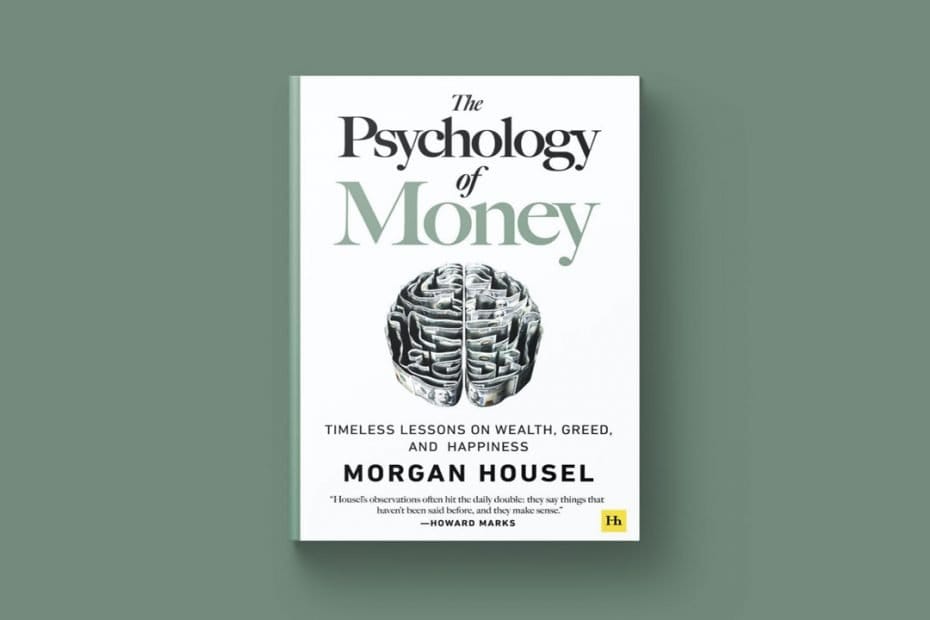Summary of "The Psychology of Money: Timeless Lessons on Wealth, Greed, and Happiness"

Introduction
Morgan Housel's "The Psychology of Money" offers profound insights into how our behaviors and psychology affect our financial decisions. Throughout this summary, we'll explore the core principles presented in the book, emphasizing how personal history, ego, and environment influence our relationship with money. The insights from this book can help anyone develop a healthier perspective on wealth and make smarter financial choices.
Content Overview
- Wealth and Happiness
- Saving Is Freedom
- Reasonable > Rational
- Surprise!
- You & Me
- Confounding Compounding
- Getting Wealthy vs. Staying Wealthy
- Tails, You Win
- Freedom
- Wealth Is What You Don't See
- Save Money
- Reasonable Risk
- Room for Error
- You'll Change
- Nothing's Free
- You & Me II
- The Seduction of Pessimism
- When You'll Believe Anything
- All Together
- Confessions
1. Wealth and Happiness
The book opens by dissecting the concept that wealth is not about a huge net worth; rather, it’s about having the financial freedom to live a life you are comfortable with. Housel emphasizes that money's ultimate purpose is to provide comfort and security, not necessarily to purchase luxury goods or impress others.
2. Saving Is Freedom
Housel explains that saving money enhances personal freedom, giving individuals the ability to make choices that can make them happier in the long run. He points out that savings serve as a safety net that can reduce fear and anxiety about the unknowns in life.
3. Reasonable > Rational
Many financial decisions are not about being perfectly rational but about being reasonable. This means understanding personal biases and emotional triggers that can lead to poor financial choices and learning how to manage them.
4. Surprise!
The author notes that the financial world is filled with surprises that often disrupt our best predictions and plans. Learning to expect surprises and adapt to them is crucial for financial well-being.
5. You & Me
Differences in personal experience heavily influence how individuals think about money. Housel urges readers to acknowledge that their personal view of money might not be universal.
6. Confounding Compounding
The power of compounding can turn modest savings into significant sums over time, but it requires patience and discipline. Housel illustrates how small, consistent investments can grow exponentially over decades.
7. Getting Wealthy vs. Staying Wealthy
Housel differentiates between earning money and keeping it. He highlights habits that can help maintain wealth, such as humility and a prudent approach to investment risk.
8. Tails, You Win
In investing, “tails” events (rare but impactful) can dramatically affect our wealth, sometimes positively. Investors should aim for opportunities where they can benefit from positive extreme outcomes without risking fatal losses.
9. Freedom
True financial freedom comes when you no longer have to be employed to maintain your lifestyle. Housel advocates for living below one's means as a path to achieving such freedom sooner.
10. Wealth Is What You Don't See
Wealth is not visible; it’s money not spent. The author challenges the common perception that wealth is displayed through expensive possessions.
11. Save Money
Saving is less about financial expertise and more about making it a consistent habit. The psychology behind saving is accepting you cannot predict the future but you can prepare for it.
12. Reasonable Risk
Understanding what you can control in a world filled with uncertainties helps in taking calculated risks. Housel advises that knowing the difference between getting lucky and making good decisions is vital.
13. Room for Error
Having a margin of safety in financial decisions (room for error) can prevent catastrophic outcomes from unforeseen events. This concept is crucial in both personal finance and investment strategies.
14. You'll Change
Your goals and desires will evolve over time; your financial strategy should adapt accordingly. Recognizing and planning for changes in one’s personal life is essential for long-term satisfaction.
15. Nothing's Free
Every financial reward comes with risk and trade-offs. Understanding these trade-offs is crucial for making informed financial decisions.
16. You & Me II
Further exploring interpersonal differences, Housel discusses how people value money differently based on their upbringing and experiences, influencing their financial behaviors.
17. The Seduction of Pessimism
Pessimism sounds more intellectual and is more seductive than optimism, which often appears naïve. However, being overly pessimistic can lead to missed opportunities.
18. When You'll Believe Anything
During uncertain times, people are vulnerable to believing unverified information. Maintaining critical thinking and skepticism during such periods is vital.
19. All Together
Bringing all the lessons together, Housel encourages a balanced, thoughtful approach to money that recognizes both its power and its limitations.
20. Confessions
In the final chapter, Housel shares his personal experiences with money, acknowledging that even financial experts are not immune to making emotional or irrational financial decisions.
Conclusion
"The Psychology of Money" is not just about how to spend, save, or invest; it's a deeper exploration of how our thoughts, behaviors, and emotions influence our financial decisions. For anyone looking to improve their financial health, understanding these psychological factors is key. You can learn more about these fascinating insights and practical advice by checking out the book here.
This summary provides a foundational understanding, but Housel’s full work offers an engaging narrative filled with compelling stories and analogies that make the concepts come to life. For anyone interested in not just growing but also maintaining wealth, "The Psychology of Money" is an essential read.